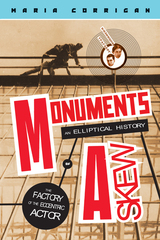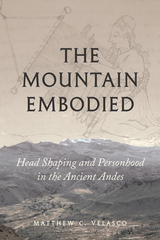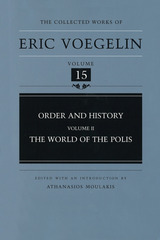
This second volume of Voegelin's magisterial Order and History, The World of the Polis, explores the ancient Greek symbolization of human reality. Taking us from the origins of Greek culture in the Pre-Homeric Cretan civilizations, through the Iliad and Odyssey, Hesiod, and the rise of philosophy with the Pre-Socratics Parmenides and Heraclitus, this masterful work concludes with the historians of the classical period.
In The World of the Polis, Voegelin traces the emergence of the forms of the city-state and of philosophy from the ancient symbolism of myth. He maintains that the limits and ultimate goals of human nature are constant and that the central problem of every society is the same—"to create an order that will endow the fact of its existence with meaning in terms of ends divine and human." Thus, Voegelin shows how "the meaning of existence" achieved concrete expression in the typical political, social, and religious institutions of Greece and in the productions of its poets and thinkers. He deals with more than fifty Greek writers in the course of his analysis of the rise of myth and its representation of the divine order of the cosmos as the first great symbolic form of order, one later supplanted by the leap in being reflected in the emergence of philosophy.
The book is a tour de force, a virtuoso performance by a scholar and philosopher of great power, learning, and imagination that places its subject matter in a new light. The editor's critical introduction places The World of the Polis in the broader context of Voegelin's philosophy of history. Scholars and students of political science, philosophy, and the history of ideas will find this work invaluable.
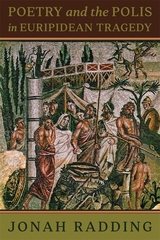
Most critics agree that Euripidean tragedy addresses a wealth of political questions, and that it successfully incorporates and engages with a variety of ancient Greek poetic traditions. Nevertheless, these topics and questions have generally been treated separately. In this book, Jonah Radding contends that the political issues addressed in Euripides’ tragedies are inextricably related to his employment of choral lyric genres such as paean and epinician, and to his engagement with canonical poetic texts such as the Iliad and Aeschylus’ Agamemnon.
We see that Euripides consistently recasts traditional poetic genres and texts in order to dramatize and illuminate political questions that are central to his tragedies. At the same time, Radding suggests that the dramatic politicization of the poetic tradition also serves to question the manner in which ancient Athenians understood and utilized these various poetic forms in their own polis. Ultimately, we see that the relationship between poetry and politics in Euripidean tragedy is truly reciprocal, for both aspects illuminate—and are illuminated by—the other, each becoming a more powerful force in the process.
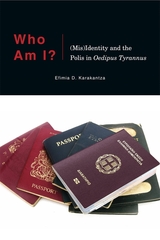
Oedipus’s major handicap in life is not knowing who he is—and both parricide and incest result from his ignorance of his identity. With two questions—“Who am I?” and “Who is my father?”—on his mind (and on his lips), the obsessed Oedipus arrives at the oracle of Delphi.
Unlike the majority of modern and postmodern readings of Oedipus Tyrannus, Efimia Karakantza’s text focuses on the question of identity. Identity, however, is not found only in our genealogy; it also encompasses the ways we move in the public space, command respect or fail to do so, and relate to our interlocutors in life. But overwhelmingly, in the Greek polis, one’s primary identity is as a citizen, and defining the self in the polis is the kernel of this story.
Surveying a wide range of postmodern critical theories, Karakantza follows the steps of the protagonist in the four “cycles of questions” constructed by Sophocles. The quest to piece together Oedipus’s identity is the long, painful, and intricate procedure of recasting his life into a new narrative.
READERS
Browse our collection.
PUBLISHERS
See BiblioVault's publisher services.
STUDENT SERVICES
Files for college accessibility offices.
UChicago Accessibility Resources
home | accessibility | search | about | contact us
BiblioVault ® 2001 - 2025
The University of Chicago Press



